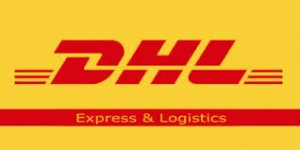
The Sunday Mail

 Brian Chitemba
Brian Chitemba
Outrage against double charging by courier service provider DHL Zimbabwe continues to grow as more cases surface following troubling revelations the courier service was charging Zimbabweans an additional us$50 or us$125 to receive parcels that would have already been paid for by the sender.
Zimbabwe is the only country in the world where DHL imposes fixed charges of that size. Several Zimbabweans —local and in the diaspora — contacted The Sunday Mail and revealed they had suffered similar experiences with the company refusing to explain exactly what the additional charges covered.
Some had packages forfeited by the courier after refusing to pay the mystery fee which at times was higher than the cost of the shipped goods.
One customer complained that, “it does not make sense for DHL to charge me US$50 for spark plugs that I will have bought in the UK and already paid them for shipping.” DHL is accused of fleecing thousands of unsuspecting Zimbabweans of substantial sums of money by charging unjustified clearance fees. DHL’s terms and conditions, seen by The Sunday Mail, only allow additional charges to be levied in the destination country if DHL encounter costs apart from the standard transportation of a parcel. An example being where a receiving nation requires certain types of goods to be examined and levies a charge for this. DHL would pass on the cost to the receiver.
The scandal, which has seen some of those affected contemplate mounting a class action, came to light after a growing number of Zimbabweans were forced to pay additional charges without receiving an explanation as to what the charges covered. The company withholds parcels unless the clearance fees have been paid.
The question remained as to how the firm arrived at the US$50 fixed charge for goods valued at less than US$50 and US$125 for goods worth more than US$50. Questions are also being asked on how the value of the goods is material to clearing. Repeated efforts to get clarification from DHL last week were fruitless as the company did not respond to questions e-mailed by this paper. Subsequent calls to DHL Zimbabwe country manager Mr Stalin Tauya went unanswered.
Many Zimbabweans are expressing outrage at the company’s conduct. A Zimbabwean expatriate based in the Democratic Republic of Congo, Mr Godwill Mlambo, blasted DHL over the double charging scam.
He said, “My fellow consultant sent me a very small parcel from Durban to Harare. He paid all the costs from there. But to my surprise, we then paid about US$150 to clear the parcel. This was more than five times the value of the parcel.
“It was bad. I had no option because I wanted to use the parcel for a job in Sierra Leone; we could not fly via Durban to collect the materials and it only made sense to ship such a small parcel. We have since stopped using DHL Zimbabwe because of that.”
An IT consultant based in the United Kingdom, who preferred to remain anonymous, also complained over his experience.
“I sent a laptop to someone in Bulawayo last year in September. They (DHL) told me that the money I had paid, which was a hundred and seventy two pounds, was all that was needed as it would cover customs duty, freight and any other charges.
“The guy in Bulawayo would just receive; that’s all. But when it arrived, DHL Zimbabwe started demanding another fee.” The IT expert, however, refused to pay the fees since the requirement was not part of the initial agreement.
“What I can tell you is they processed a refund of US$25 and apologised,” he said.
Bulawayo-based cartoonist Martin Manhenga said he sent a book to Gweru via DHL Zimbabwe, but the recipient was told to pay clearance fees.
He then confronted the company’s Bulawayo office where he was told “there is no such arrangement” and the book was released without clearance fees.
Prominent lawyer Mr Terrence Hussein said aggrieved parties could successfully mount a class action against DHL to demand an explanation regarding how the company arrived at the US$50 and US$125 clearance fees.
“In law, everyone has a right to demand an account of what they are paying for. If DHL refuse to reveal as to how they came up with the clearance fees, then people can make a class suit, depending on whether they have a similar case.
“Even individuals can do the same and file a suit against the company.”



